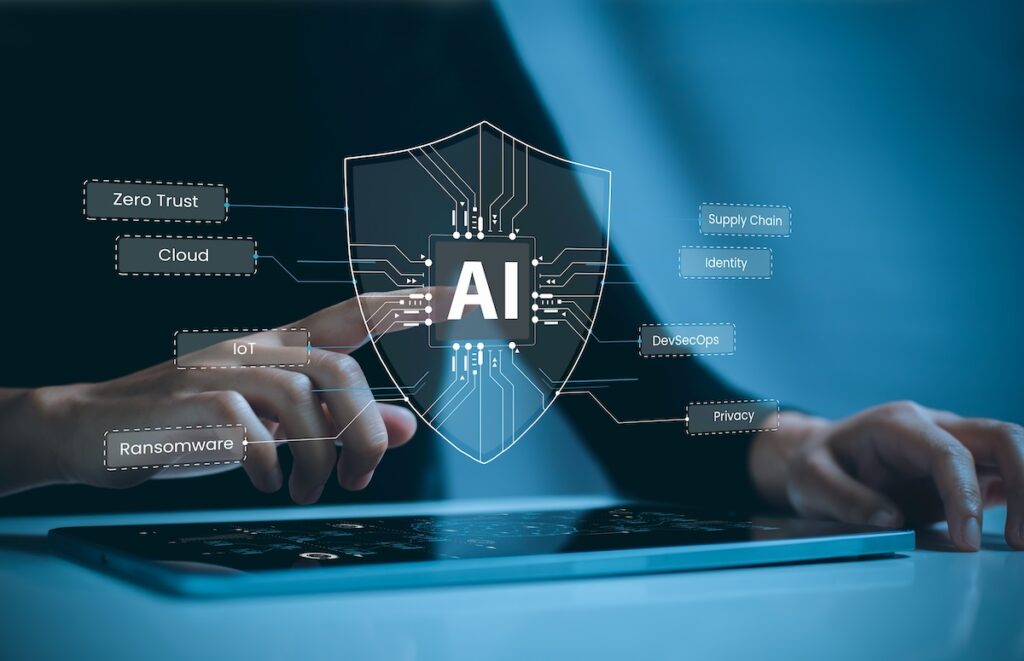By harnessing AI capabilities, organisations can enhance their security platforms, detect sophisticated attacks, automate tasks, and respond rapidly to incidents.
However, along with the potential come valid concerns that must be addressed to ensure AI’s reliability and ethical use in defensive cybersecurity.
The adoption of AI in security platforms is gaining momentum. Traditionally, these platforms aggregate and analyse vast amounts of security event data to detect and respond to potential threats.
With the integration of AI capabilities, these platforms are becoming more intelligent and efficient.
AI algorithms can analyse diverse and complex data sources, identify patterns, and detect real-time anomalies, empowering security teams to detect and respond to sophisticated attacks swiftly.
AI-powered platforms automate repetitive tasks, provide actionable insights, and enhance threat detection accuracy, minimising false positives.
AI’s capacity for continuous learning and adaptation to evolving threats enhances overall defence effectiveness, enabling organisations to protect critical assets better and respond promptly to security incidents.
Advantages of adopting AI for organisations include:
- Increased situational awareness – AI’s ability to analyse vast amounts of data from multiple sources enables real-time situational awareness for defence organisations. However, the challenge lies in AI algorithms requiring deeper contextual understanding, which may lead to data misinterpretation.
- Improved threat detection – AI algorithms excel in identifying patterns and anomalies in datasets, detecting potential threats or unusual activities. By leveraging AI-assisted tools, defence platforms can strengthen security posture and protect sensitive information.
- Predictive analytics – AI-powered predictive analytics enables defence organisations to anticipate and mitigate potential cyber threats. By analysing historical data and identifying patterns, AI algorithms can forecast future attack vectors, enabling security teams to develop robust defence strategies proactively.
While the adoption advantages are significant, there are valid concerns, including the potential for fledgling AI algorithms to generate false positives and negatives.
Fine-tuning detection mechanisms becomes crucial to mitigate risks associated with false alerts and ensure reliable threat identification.
As AI becomes more prevalent, attackers may look to switch focus and start directly targeting AI systems and algorithms to compromise a network. Researchers are still trying to understand the scope of attack toward AI and what can be achieved.
Defence toward AI systems will require ongoing research and development efforts to understand the potential avenues of compromise, which further underlines the importance of continuous monitoring and adaptation in cybersecurity.
Ethical considerations
AI algorithms should be designed and deployed to respect individual privacy rights and comply with regulations. Transparency in how AI models operate and make decisions is essential to instil trust and facilitate effective oversight.
Proactively identifying and mitigating biases in training data and algorithms is vital to prevent discriminatory outcomes and ensure fairness in defensive operations.
Additionally, there’s a growing concern that AI has the potential to surpass human output and control. AI is progressively gaining autonomy in decision-making as it continues to be fed and ingest information and data.
It’s becoming apparent that there’s a need for clear governance frameworks and emergency shutdown procedures to mitigate the risk of unintended consequences or disasters.
Investing in AI research, development, and strategic partnerships is imperative to remain competitive and at the forefront of the cyber defence industry.
Collaboration with academia, industry experts, regulating bodies, and technology providers is crucial for integrating state-of-the-art AI capabilities into defence platforms.
Regular technology assessments and continuous monitoring of AI advancements are essential for defence organisations to identify emerging trends and capitalise on opportunities.
Embracing flexibility, adaptability, and a proactive stance towards innovation will ensure that defence cybersecurity remains at the forefront of technological advancements.
Partner Content in association with Immersive Labs
